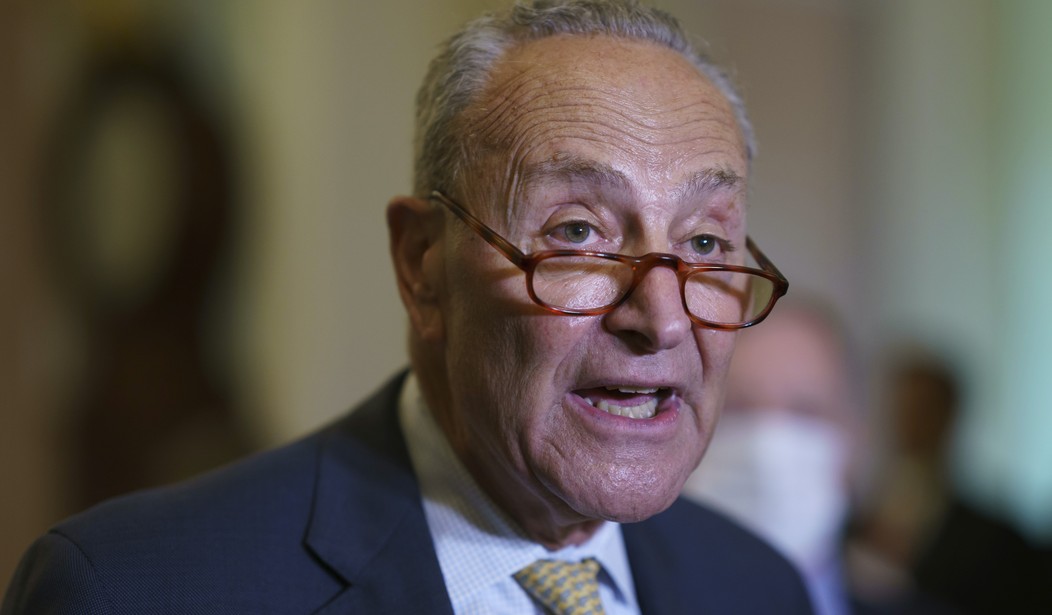When Republicans who oppose federal marijuana prohibition vote against your legalization bill, you probably are doing something wrong. That is what happened last week, when the House of Representatives approved the Marijuana Opportunity Reinvestment and Expungement (MORE) Act by a vote of 220 to 204.
The ayes included 217 Democrats but only three Republicans, two fewer than voted for the MORE Act when the House passed it in 2020. The meager and waning GOP support for the bill suggests that Democrats want credit for trying to legalize marijuana but are not really interested in building the bipartisan coalition that would be necessary to accomplish that goal.
The 2020 vote was the first time that either chamber of Congress had approved legislation that would remove marijuana from the list of federally prohibited drugs. But as expected, the MORE Act went nowhere in the Republican-controlled Senate.
The Senate is now evenly divided between the two parties, with Democratic control depending on Vice President Kamala Harris' tie-breaking vote. So even if Democrats unanimously supported a legalization bill, they would still need the support of 10 Republicans to overcome a filibuster.
Democrats seem determined to ignore that political reality. Both the MORE Act and the legalization bill that Senate Majority Leader Chuck Schumer (D-New York) plans to introduce this spring include unnecessarily contentious provisions that are bound to alienate Republicans who might otherwise be inclined to resolve the untenable conflict between federal prohibition and the laws that allow medical or recreational use of cannabis in 37 states.
According to the latest Gallup poll, 68% of Americans think marijuana should be legal, including 83% of Democrats and 50% of Republicans. Even Republicans who are not crazy about the idea should be able to get behind legislation that would let states set their own marijuana policies without federal interference.
Recommended
Such legislation can be straightforward. The Respect State Marijuana Laws Act of 2017, sponsored by then-Rep. Dana Rohrabacher (R-California), consisted of a single sentence that said the federal marijuana ban would not apply to conduct authorized by state law. Its 46 co-sponsors included 14 Republicans -- 11 more than voted for the MORE Act last week.
The Common Sense Cannabis Reform Act, which Rep. Dave Joyce (R-Ohio) introduced last May, is 14 pages long. So far it has just eight co-sponsors, including four Republicans, but that still means it has more GOP support than Democrats managed to attract for the 92-page MORE Act, which includes new taxes, regulations and spending programs.
Rep. Thomas Massie (R-Kentucky) thinks Congress never should have banned marijuana because it had no constitutional authority to do so. He nevertheless voted against the MORE Act, objecting to the "new marijuana crimes" its tax and regulatory provisions would create, with each violation punishable by up to five years in prison and a $10,000 fine.
The 163-page preliminary version of Schumer's bill doubles down on the MORE Act's overly prescriptive and burdensome approach. It would levy a 25% federal excise tax on top of frequently hefty state and local taxes, impose picayune federal regulations and create the sort of "social equity" programs that gave pause even to Rep. Matt Gaetz (R-Florida), the MORE Act's lone Republican co-sponsor.
GOP support for marijuana federalism is clear from the fact that 106 Republicans voted last April for the Secure and Fair Enforcement (SAFE) Banking Act, which would protect financial institutions that serve state-licensed marijuana businesses from federal prosecution, forfeiture and regulatory penalties. The SAFE Banking Act would already be law if it had not been blocked by Schumer, who insisted that his own bill take priority.
Instead of building on the Republican appetite for letting states go their own way on this issue, Schumer is effectively telling GOP senators their views don't matter. That makes sense only if he is more interested in scoring political points than in reversing a morally, scientifically and constitutionally bankrupt policy that should have been abandoned long ago.

























Join the conversation as a VIP Member